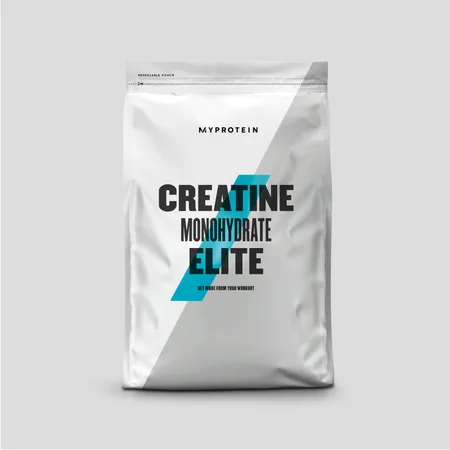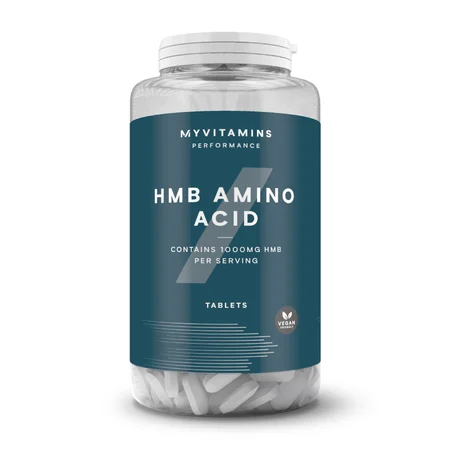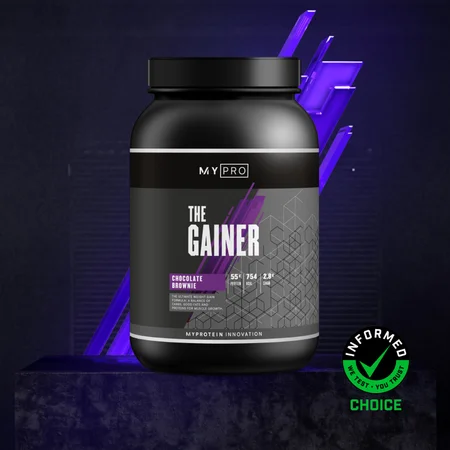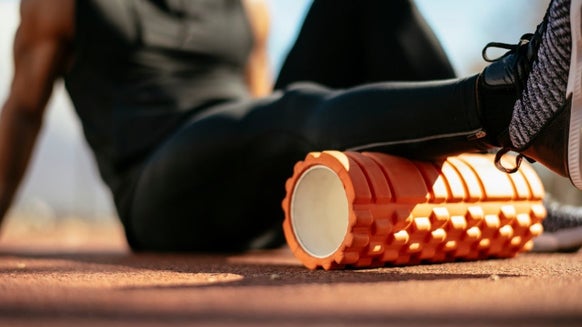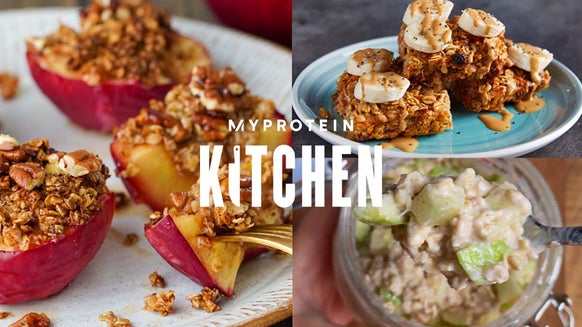4 Best Supplements For Weight Gain

Gaining weight sounds easy — you just eat a bit more, move a bit less, and the number on the scales will go up, right? In theory, yes. But gaining the right kind of weight — i.e. lean muscle mass — is a bit more complicated.
Luckily, there’s an array of supplements out there to help you out. Not so luckily, there are just as many supplements that will not help you at all — and may even cause more harm than good. You know those magic pills that promise to turn you from Bruce Banner to The Hulk overnight? Yeah, they’re the ones to avoid.
So, to help you distinguish between the money-wasters and miracle-makers, we’ve put together a list of the best supplements for weight gain to send you in the right direction. Oh, and as always, we’ve backed it all up with a bit of science!
In this article, you'll find:
Whey protein for weight gain
Creatine for weight gain
Gainers for weight gain
HMB for weight gain
Supplements that don't support weight gain

1. Whey protein
Let’s start with a classic. Whey protein has demonstrated several benefits for health and fitness, though is most notorious for enhancing lean body composition. Whey protein contains amino acids which trigger muscle protein synthesis (muscle building) and reduce muscle breakdown — the overall effect being an increase in lean muscle mass.1
Gaining lean muscle mass without simultaneously gaining fat mass is challenging, though for most of us, desirable. Could whey protein be the trick? It could well be, as not only can whey protein prevent the gain of fat mass during muscle building, but a post-workout shake could actually help you lose fat mass.
In a double-blinded randomised controlled trial, male and female volunteers were put to work for an 8-week resistance training programme. After which, they consumed an ‘unknown’ shake (this was secretly either whey protein concentrate, beef protein isolate, hydrolysed chicken protein, or a placebo control). Those who drank the whey protein had the biggest increase in lean mass and lost more fat mass than the control group.2
Whey protein is wonderfully versatile — it can be added to shakes, yoghurt, porridge, baked goods, and even savoury dishes if you opt for unflavoured — making it an easy way to pack in some extra calories to your habitual diet.
So, whether you’re looking to bulk up, lean out, pack in extra calories, or simply after a tasty snack, when it comes to weight gain, whey is the way.
2. Creatine
Creatine is a non-essential nutrient that’s produced in the liver, kidneys, and pancreas, and can be obtained through protein-rich dietary sources.
Alongside its uses for enhancing exercise performance, creatine supplementation undoubtedly affects body composition. One study showed that combining creatine supplementation with resistance training leads to greater increases in lean muscle mass — whilst decreasing body fat % — compared to resistance training alone.5
Creatine has demonstrated its role as a promoter of weight gain in a vast range of populations — from American football players and weightlifters to the elderly.6-9
When beginning creatine supplementation, it’s advised you first complete a ‘loading’ phase to fully saturate your muscle creatine stores. To do this, consume 0.3g per kg of body mass (about 5g) four times a day (so 20g) for a week. Then you can move onto the ‘maintenance’ phase by consuming 3-5g a day to keep your creatine stores nicely topped up.3
It seems that this non-essential nutrient might actually be pretty essential when it comes to reaching your weight gain goals. Just a few grams a day can help you put on those extra kilos of muscle mass and see more rewards from your workouts.
3. Weight gainers
The name says it all. This high-calorie supplement serves the purpose of helping you put on weight. Usually, it’s packed with blends of carbohydrate and protein — much like our ‘THE Gainer’ powder, which provides a whopping 55g of protein, 110g of carbs, and 750 calories per serving.
The energy-density of weight gainers makes them particularly useful for those with poor appetite or who struggle to eat large volumes of food, such as elderly individuals. It’s important to maintain muscle mass and protein intake as you age, since rates of muscle protein synthesis decline by around 44% in those over 60 years old.10
Regardless of age, adding this supplement to your nutrition regime is an easy way to achieve the energy surplus needed for weight gain.

4. HMB
HMB (Beta-hydroxy-beta-methylbutyrate) is a leucine metabolite (a product of broken down leucine). Leucine is a branched chain amino acid that’s a great stimulator of muscle protein synthesis.11 HMB, on the other hand, is great at preventing muscle breakdown (catabolism). However, only 5% of metabolised leucine is converted to HMB, which makes it tricky to get the 3g of HMB required for maximum muscle building12,13 — so, a supplement may be the more practical option.
To test if HMB is all it’s cracked up to be, a group of elite male rugby union players took a pre-workout dose of HMB during an 11-week intense training period. Whilst the players in the placebo group lost weight, those taking HMB managed to gain weight, despite their high energy expenditure.14
HMB is especially beneficial during periods of inactivity. Now we don’t just mean when you take a rest day, but say you suffer an injury and are on bed rest for several weeks — surely your gym gains will suffer, right? Well, perhaps not it you take HMB. Let’s take a look at some research trials to find out more…
In one study, older adults were confined to a bed for 10 days, doing nothing but relaxing (sounds good already!). Well, half of them were taking 3g of HMB a day. As you would expect during periods of complete inactivity, these participants lost some lean body mass. Interestingly, those who weren’t supplemented with HMB lost 2kg of muscle mass over the 10 days, whilst the HMB group clung onto their weight, losing only 0.17kg.15
HMB was also successful at maintaining body mass and lean mass in those recovering from hip fracture.16
Overall, HMB is worth considering for the preservation of body mass, which may otherwise be lost during prolonged inactivity. HMB supplementation at 3g a day may be taken in addition to other weight-gain supplements, to ensure muscle building exceeds muscle breakdown, resulting in net weight gain.
Supplements that don’t promote weight gain
The effectiveness of dietary supplements is very much individual. But as a whole, here are a few supplements linked to weight management, with an idea of which ones to stay away from if your goal is weight gain.
| Good – promote weight gain | Bad – promote weight loss |
| α-Lipoic acid | |
| Protein powders | Caffeine |
| (whey, casein, soy, etc.) | Raspberry ketones |
| Creatine | Bitter orange |
| Weight gainers | Green tea/coffee |
| HMB | β-Glucans |
| Leucine | Garcinia |
| Orlistat |
Take home message
Basic physiology of weight gain states that if your energy intake is greater than your energy expenditure, you will gain weight. Whilst we’re not going to argue with human physiology, we will argue in favour of using supplements (combined with the right diet) to help you reach your weight gain goals.
Whatever your age or activity level, there seems to be strong evidence for supplementary protein powders, creatine, and weight gainers to help you gain weight quicker, more of it, or the right kind. Even during periods of rehabilitation, HMB will hang onto your body mass and prevent you taking a backwards step.
Finally, if a weight-gain supplement sounds too good to be true (back to the overnight Hulk) it probably is — read the label and check the science!

